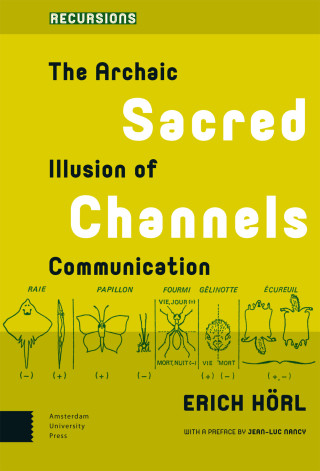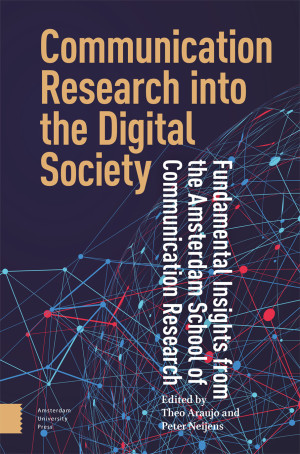PREFACE
PART 1 ASCoR 25 YEARS
Chapter 1 How international, national, and local research strategies shaped ASCoR’s history in its first 25 years - Peter Neijens, Sandra Zwier, Claes de Vreese, Jochen Peter, Rens Vliegenthart and Theo Araujo
Chapter 2 How technological and societal developments shaped the agenda of ASCoR -
Peter Neijens and Patti Valkenburg
PART II EMPIRICAL FINDINGS AND THEORETICAL INSIGHTS
Political Communication & Journalism
Chapter 3 Communicating delegitimisation. Political information and challenges to democracy - Michael Hameleers, Emily Gravesteijn, Linda Bos and Alessandro Nai
Chapter 4 Disenchantment with political information: Attitudes, processes and effects -
Alessandro Nai, Susan Vermeer, Linda Bos and Michael Hameleers
Youth & Media Entertainment
Chapter 5 Youth and the digital society - Jessica Taylor Piotrowski
Chapter 6 The Media Entertainment Success Cycle - Jeroen S. Lemmens
Corporate Communication
Chapter 7 Organisations, media, and society (Toni G.L.A. van der Meer, Christian Burgers, Sandra H.J. Jacobs, Pytrik Schafraad and Mark Boukes
Chapter 8 Contested issues and organisations: Media debates about sustainability and diversity - Anke Wonneberger, Anne Kroon, Linda van den Heijkant, Christel van Eck and Jeroen Jonkman
Persuasive Communication
Chapter 9 Tailored health communication in a digital world - Eline S. Smit, Annemiek J. Linn, Minh Hao Nguyen, Adriana Solovei, Melanie de Looper and Julia C.M. van Weert
Chapter 10 The importance of consumer empowerment in dealing with digital persuasion - Edith G. Smit and Eva A. van Reijmersdal
Chapter 11 Persuasion in an algorithmic context - Guda van Noort, Hilde Voorveld and Joanna Strycharz
Cross-cutting topics
Chapter 12 Human-machine communication - Jochen Peter, Theo Araujo, Carolin Ischen, Sonia Jawaid Shaikh, Margot J. van der Goot and Caroline L. van Straten
Chapter 13 How Artificial Intelligence is changing ASCoR’s research - Claes de Vreese
Chapter 14 Person-specific media effects - Patti M. Valkenburg, Ine Beyens, Nadia Bij de Vaate, Loes Janssen and Amber van der Wal
Chapter 15 Computational communication science in a digital society - Damian Trilling, Theo Araujo, Anne Kroon, A. Marthe Möller, Joanna Strycharz and Susan Vermeer
Chapter 16 Communication as a social system - The work of Loet Leydesdorff - Wouter de Nooy and Iina Hellsten
NOTES ON THE EDITORS AND CONTRIBUTORS

